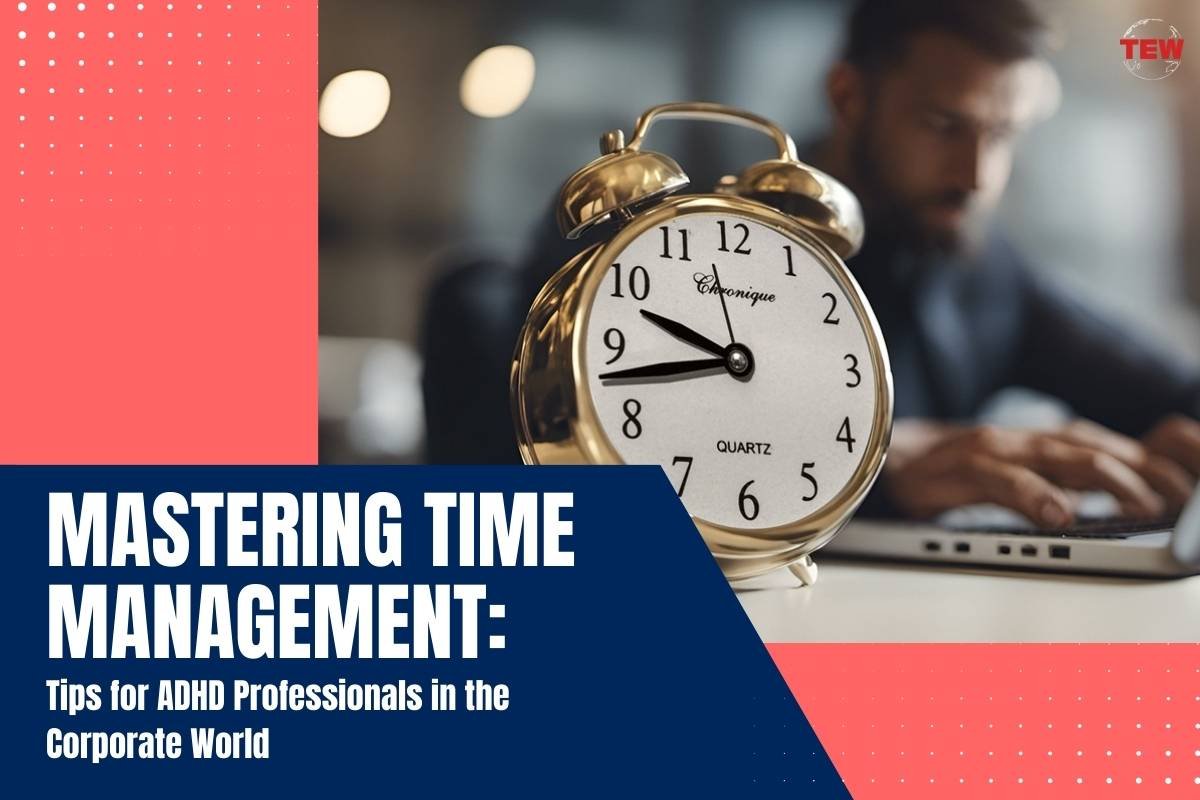Image by Gerd Altmann from Pixabay
People with ADHD have brains that naturally and biologically work differently from neurotypical brains. This means the “normal” strategies related to time management, organization, and productivity may not work for them.
Often a professional with ADHD will not disclose their disorder and struggle in silence. However, workers with ADHD can be just as successful as those without. So, let’s look at some expert tips for ADHD professionals to function efficiently in the corporate world.
Understanding ADHD in the Workplace

It’s important to destigmatize and normalize ADHD in the corporate setting. Those with ADHD often feel they can’t speak up about the challenges they face at work that are directly negatively affecting their task performance and promoting counterproductive work behaviors.
ADHD is not just an excuse for missing deadlines and lack of focus. ADHDers tend to be easily distracted and become overwhelmed by the thought of doing a task (task initiation), leading to procrastination. This disorder disrupts a professional’s work environment and internal environment, which is filled with anxiety, guilt, and shame.
Individuals with ADHD battle with organization, time management, impulsivity, attention, and more. Time blindness (the inability to accurately estimate how long a task will take to complete) and time perception issues result in poor time allocation, feeling constantly behind schedule, and unfinished tasks.
Time Management Strategies
Time management works differently for professionals with ADHD.
Due to a lack of dopamine (the reward chemical) release in their brains, they can benefit from breaking tasks into small, manageable steps. For example, rather than setting a single task of Writing an Article, someone with ADHD can break this seemingly large task into the following:
- Read brief
- Outline article
- Plan article
- Write article body
- Write introduction
- Write conclusion
- Edit
- Submit
Allocate some time on a Sunday evening to plan your week in detail, allowing flexibility for unexpected events and distractions. Then take 5 minutes to revisit your schedule for the day each morning.
Reminders are your best friend. Your schedule should be categorized and color-coded with icons and multiple alarms. Use various formats on your phone, laptop/computer, and a physical calendar on your wall.
Focus and Concentration Techniques

ADHD apps are reported to be extremely useful to enhance one’s focus. The Pomodoro Technique is helpful for gamifying work, making it more interesting for professionals with ADHD. Pomodoro involves 20-25 minutes of solid work, followed by 5 minutes of complete rest, and is repeated until a task is complete. Pomodoro apps help with setting alarms for these time limits.
Your 20-25 minutes shouldn’t be interrupted by bathroom breaks or checking your phone. During your 5-minute breaks, practice mindfulness and meditation for improved concentration, stretch, take a quick walk, use the bathroom, or have a snack. Breathing and grounding techniques are great options to improve mindfulness.
Minimize distractions in your work environment by playing music without lyrics through noise-canceling headphones or earphones and ensure you’re situated in a quiet space.
Communication and Collaboration Tips
Individuals with ADHD have an extreme sensitivity to disapproval (Rejection Sensitivity Dysphoria), meaning feedback or critique feels like a personal attack on their character, which can feel physically painful. Since feedback is necessary for growth, learning, and improved performance, what can ADHDers do to combat this?
Communicate honestly and directly with colleagues and supervisors to discuss how best this, and other difficulties, can be managed. Ask to receive feedback from a specific safe person and that feedback revolves around the work rather than a supposed character flaw.
Leverage your ADHD gifts or strengths such as creativity, problem-solving, innovative thinking, and hyperfocus to make them work to your benefit. Involve yourself fully in brainstorming processes, and bring your natural enthusiasm and new project approaches to meetings. And write all your ideas down!
Stress Management and Self-Care

Someone with ADHD can feel like 200% input or effort only achieves a 20% output or result in daily tasks. This extra effort can lead to burnout and overwhelm. Learn to recognize your signs of heading toward burnout such as social isolation, irritability, and health issues. Long-term burnout can lead to low self-esteem, depression, and anxiety.
Incorporate regular breaks and self-care activities into your workday and set alarms for these breaks. Use this time to practice healthy habits such as breathing, getting sun, taking a brisk walk, stretching, dancing, and eating something nutritious.
Seek professional support and resources for managing your stress in the form of a psychologist, life coach, or mental healthcare professional who specializes in ADHD.
Career Development and Advocacy
Capitalize on your strengths in the workplace. Additionally, advocate for yourself by requesting accommodations and support services from your supervisors or leaders.
ADHD accommodations could take the form of a dedicated quiet workspace, noise-canceling headphones, more frequent short breaks instead of long ones, duties being split into smaller tasks, an extension of deadlines for large or difficult tasks, working alongside a monitor or mentor for accountability, and regular discussions about expectations and performance with your bosses.




